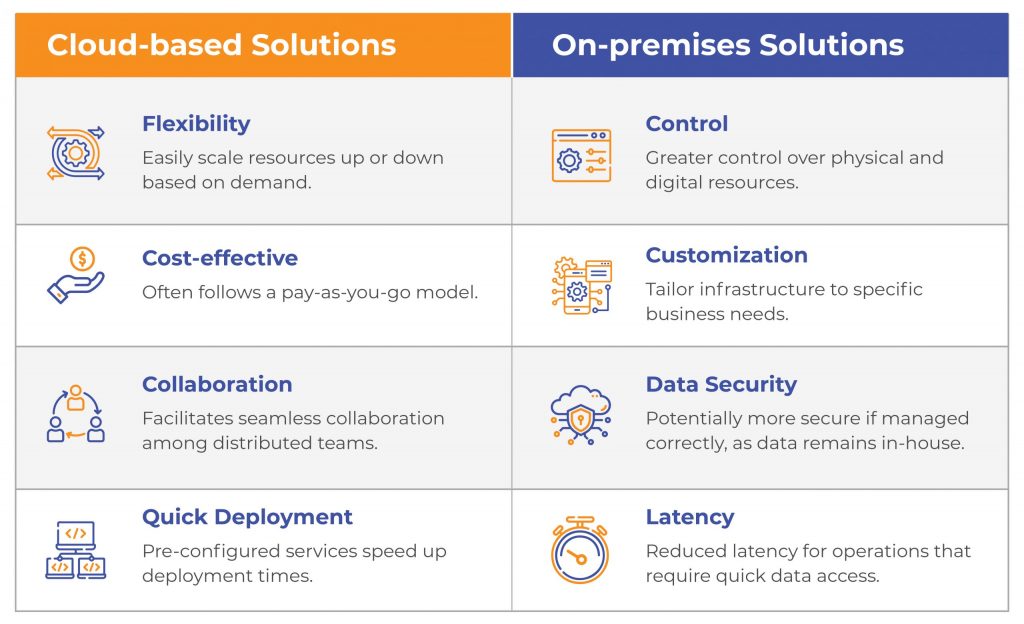Strategically Implementing Machine Learning Solutions for Business Growth

Machine learning has transformed the landscape of modern business, powering intelligent systems and unlocking unprecedented insights from data. For forward-thinking businesses, the judicious implementation of Machine Learning solutions is not just an option, but a necessity. ML has application potential in diverse sectors, including education, healthcare, transportation, manufacturing, and many more. This is why the ML market is projected to expand at a CAGR of 36.2% between 2023 and 2030.
Aligning ML with Business Objectives
Strategic Alignment: It’s imperative to ascertain that every Machine Learning initiative directly aligns with, and propels, the overarching business objectives. Every model, every prediction, and every insight must contribute tangibly to the company’s vision and mission.
ROI Considerations: Just like any investment, machine learning projects need to have a clear pathway to a tangible ROI. This entails not only predicting but also measuring the subsequent returns from these technological ventures, ensuring that resources are used effectively.
Using simple business impact metrics pre- and post-ML integration can offer useful insights. For instance, OMD, a subsidiary of Omicron Media Group, reported a 33% reduction in cost per qualified visit, 14% reduction in cost per click, and 67% uptick in conversion rate after employing ML-driven automating bidding mechanisms.
Understanding the Technical Landscape
Infrastructure Needs: In the debate between cloud vs. on-premises, businesses need to evaluate the most appropriate solution. While cloud offers flexibility and scale, on-premises might offer more control, depending on the business needs.
Here is a quick checklist to guide decision-makers in setting up robust ML infrastructure.
Purpose & Scale
- Define the purpose: Is it for prototyping, small-scale projects, or enterprise-wide deployments?
- Estimate computational needs: How much processing power(CPU, TPU,GPU etc.)and memory will the algorithms require?
Data Storage & Management
- Determine storage requirements: Size and type (Vector DB, SQL, NoSQL, etc.)
- Decide on data backup, recovery, and redundancy strategies.
Network Configuration
- Ensure fast and stable connectivity, especially if working with large datasets.
- Plan for secure data transfers, especially if operating in a hybrid (cloud and on-premises) environment.
Security Protocols
- Install firewalls, intrusion detection systems, and other security measures.
- Plan for regular security audits and updates.
Integration Points
- Identify existing systems that the ML solution needs to integrate with.
- Determine middleware or API requirements for seamless integration.
Scalability Provisions
- Choose systems that can be scaled up easily without massive overhauls.
- Plan for future growth in data and computational needs.
Cost Analysis
- Factor in direct costs (hardware, software licenses) and indirect costs (maintenance, upgrades).
- Analyze long-term costs for both cloud and on-premises solutions specifically for data-preprocessing, model training & inferencing .
Support & Maintenance
- Ensure regular system updates.
- Plan for downtime, maintenance windows, and system health checks.
Machine Learning isn’t an isolated entity. It must seamlessly blend into the existing IT ecosystem, strengthening and complementing the existing systems.
Ensuring Data Strategy and Governance
Machine Learning thrives on data. Ensuring high-quality, accurate, and timely data is paramount to derive genuine insights. Efficient data strategies streamline the processes of collection, storage, and preprocessing, laying the foundation for successful ML initiatives.
Regulations like GDPR and CCPA necessitate stringent data governance policies. Being compliant not only safeguards the business against potential legal repercussions but also builds trust among stakeholders.
Choosing the Right Team and Talent
Depending on the scale and specialization of the project, businesses must decide whether to cultivate in-house talent or contract specialists. A successful ML team comprises a myriad of roles – from data scientists, data engineers, and ML engineers to domain experts. Their collective expertise ensures the fruition of ML projects.
Risk Management in ML Deployments
Ensure that your machine learning models are interpretable. This not only ensures accountability but also fosters trust among stakeholders. Machine learning models, if not checked, can inadvertently perpetuate biases. It’s essential to identify and mitigate these biases to ensure fairness in predictions and recommendations. Given the sensitive nature of data handled, security cannot be an afterthought. Protect your ML implementations from potential threats and vulnerabilities.
Continuous Evaluation and Adaptation
Did you know that 40% of early adopters of ML are still using those early models? The core problem is the lack of ML accuracy, due to stagnant models and discontinued model growth. This is why it is important to establish clear KPIs to continuously monitor the performance and impact of your ML projects. This allows for timely retraining and optimizations.
Iterative Approach: The world changes, and so should ML models. Regularly updating strategies based on feedback and ever-evolving business requirements ensures sustained relevance.
Preparing for the Future
The ML landscape is constantly evolving. Staying abreast of the latest tools, techniques, researches, and best practices ensures that businesses always stay ahead of the curve.
As we march towards the future, ethical considerations surrounding AI and ML cannot be overlooked. Lead with a conscience, ensuring that your solutions are not just technologically advanced but also morally sound.
Implementing machine learning solutions requires a strategic mindset. It’s paramount to bridge the gap between technical and non-technical stakeholders, fostering collaboration for successful integration. In this dynamic world of ML, being proactive, adaptable, and forward-thinking will set businesses on the path of sustainable growth.
Recent Blogs

Preprints, Transparency, and the Future of Scholarly Publishing: Why Journals Should Lead the Shift

From Disruption to Direction: Finding Focus in a Transforming Industry



